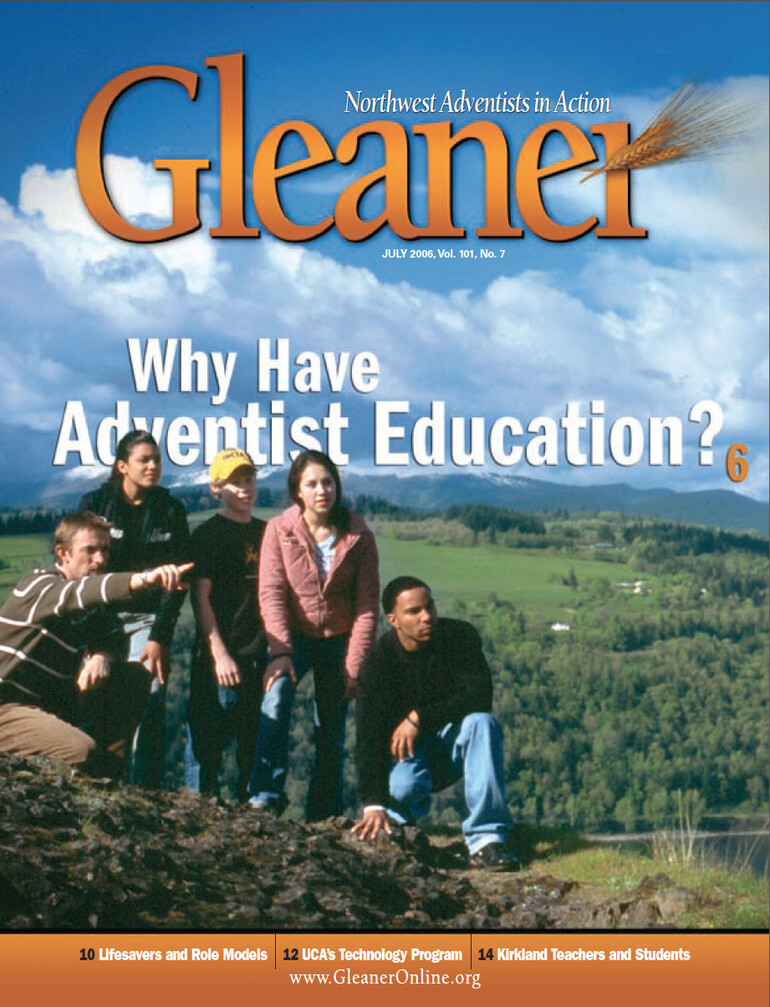Interstate 495, the beltway around Washington, D.C., was clogged. I sat in my Avis rental car thinking about how nice it is to live in Walla Walla (where the only traffic jam occurs at Dairy Queen when the Peanut Buster Parfait goes on sale).
Suddenly I heard a voice from on high. “Excuse me,” he said, “Um, sir?”
I looked out the passenger window to see an appliance delivery truck from Sears. The driver, a dead ringer for the former football player William “The Refrigerator” Perry, asked, “Do you know if this highway goes to Bethesda?”
“I don’t know,” I replied. “I’m from Washington.”
He looked confused.
Catching on, I explained, “I’m from Walla Walla, Washington—not Washington, D.C.”
“So does this take me into Bethesda?” He was unrelenting.
“I don’t know, sir. I’m not from this area.”
Then he asked me a question that still cracks me up. “Well, um, what’s your hunch?”
Now I ask you: What difference does my hunch make? It’s not like the town will suddenly relocate based on my hunch. As if the residents might conspire, “Karl wants this town to be on his way from Baltimore to Shenandoah Valley Academy, so what do you say we accommodate him and move?” Bethesda is wherever Bethesda is, and my hunch isn’t going to change that.
So I reiterated, “Sir, I really don’t know.”
“But what do you think?”
Exasperated, I just spouted what he wanted to hear. “Yea, this road heads toward Bethesda. Just go on up here and you’ll see the signs. You can’t miss it.”
“Thank you, sir!” his front gold tooth glimmered in the sunshine.
“No problem,” I said as I changed lanes. (Since he was about 250 pounds my superior, I didn’t want him following me in case my directions were skewed!)
That conversation still baffles me. Why would you ask for a stranger’s opinion on direction? After all, there is a true north and that doesn’t change with a hunch.
Nevertheless, a lot of folk these days drift through life with a similar worldview. “There is no moral truth,” they’ll tell you.
Some real bright professors teach this. For example, a distinguished professor at the University of Chicago addressed the incoming class by saying this: “There are two goals that the university will not pursue. Don’t expect them here. The first one is ‘providing truth’… We expect you to figure out the truth, if there is one.
“[Secondly], don’t expect us to provide moral guidance. Elite universities operate on the belief that there is a clear separation between intellectual and moral purpose… We are silent on the issue of morality.”1
Well, call me old-fashioned, but I believe there is such a thing as moral truth. Moreover, I want my kids to learn as much in school. That’s why I’m happy to invest in Adventist education. At the church school where my daughters attend, they are learning that there is right and wrong, good and evil, truth and lies. In spite of what the world might suggest, there are NOT lots of pathways to some nirvana where we will all land some day. Jesus claimed, “I am the way and the truth and the life...” (John 14:6). He did not say He is one of many ways.
To have this truth instilled in my kids at school is well worth the price of Christian education. In our world of moral relativism there’s no better investment than to train our young people in truth. If you doubt me on this, ask a mature Christian for a second opinion. Just don’t ask some bewildered, big guy roaming aimlessly on I-495. I have a hunch he’s not in a good mood.
1 As quoted by John Ortberg, “The Fruit of the Spirit: Goodness,” at http://data.mppc.org/sermon/transcript/040725_jortberg_tr.pdf.





